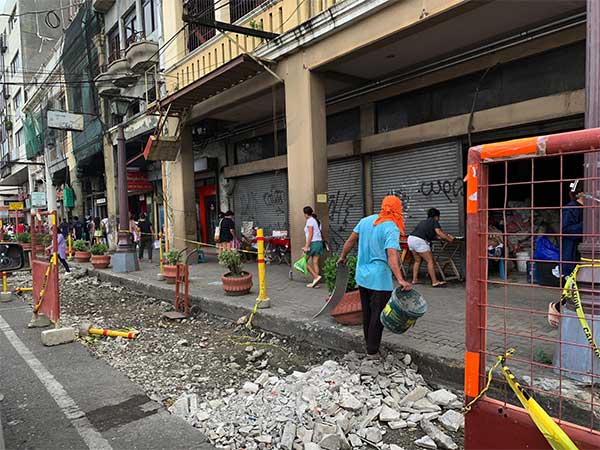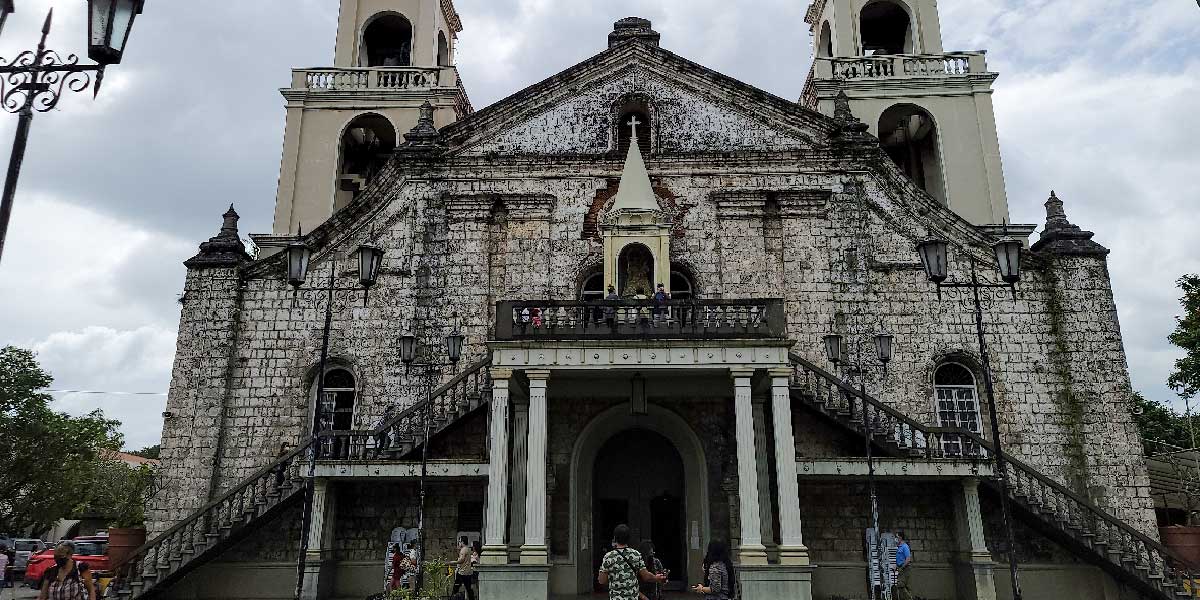
By Rjay Zuriaga Castor and Joseph Bernard A. Marzan
The ongoing drainage project along J.M. Basa Street (Calle Real) has become a flashpoint for accusations between Iloilo City Mayor Jerry Treñas and Department of Public Works and Highways (DPWH)-Iloilo City District Engineer Roy Pacanan, each blaming the other for delays.
Pacanan, in a Dec. 23 memorandum addressed to DPWH-Western Visayas regional director Sanny Boy Oropel, accused the city government of inefficiency and delayed responses, which he claimed disrupted project timelines.
Pacanan noted that requests for coordination meetings, made as early as February 15, 2024, were left unaddressed until May 2, causing adjustments to accommodate the city’s requirements.
He further highlighted the city government’s 106-day delay in responding to road closure requests, with approval for temporary closure granted only on Sept. 25.
These delays, Pacanan argued, may violate the Ease of Doing Business Act and the Anti-Graft and Corrupt Practices Act, and he indicated plans to forward the matter for potential legal action.
“As of Dec. 26, the project is 51.62% complete, which is ahead of schedule, contrary to claims of delays,” Pacanan said, adding that challenges such as underground telecommunication lines were being addressed.
He described Treñas’ allegations of delays as “unsubstantiated” and criticized the mayor’s statements as “unprofessional and unethical.”
TREÑAS FIRES BACK
In response, Treñas disputed Pacanan’s claims, accusing the DPWH-Iloilo City District Engineering Office (ICDEO) of beginning the project without securing permits from the Office of the Building Official, despite the street’s classification as a national road.
Treñas cited the “clean hands doctrine” from a 2012 Supreme Court case, arguing that the DPWH cannot shift blame for its own procedural missteps.
“The delays stem from unreasonable engineering work at Calle Real, causing heavy traffic and disruption to businesses. The ICDEO attributing delays to my office is unethical and disrespectful,” Treñas said in a letter to DPWH Secretary Manuel Bonoan.
He defended the city government’s timeline for approving road closures, explaining that the City Council’s legislative discretion, including consultations with stakeholders, required adherence to proper procedures and three readings as mandated by law.
“The City Council operates independently, and I cannot impose my authority over its legislative processes due to the principle of separation of powers,” Treñas emphasized.
Treñas also pointed to Pacanan’s history of alleged delays in other projects, which led to his declaration as persona non grata by both executive order and a city council resolution earlier this year.
ROOT OF THE DISPUTE
The project, which involves a 292-day lane closure from Sept. 26, 2024, to July 13, 2025, aims for completion by April 6, 2025.
The mayor has called Pacanan’s memo a deflection of accountability and inconsistent with the DPWH’s service motto, “Serbisyong May Bilis: Building Better More for a New Philippines.”
Both sides have publicly expressed their commitment to resolving the project’s issues, but the friction between the city government and DPWH underscores the challenges of interagency coordination in infrastructure projects.



















